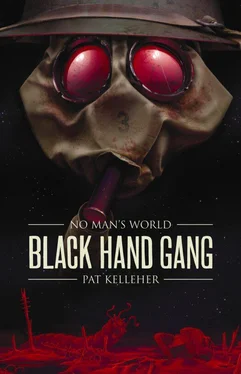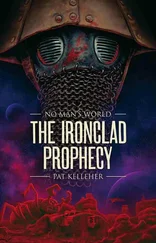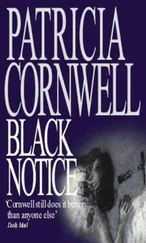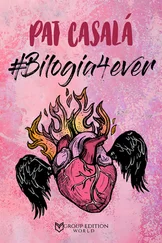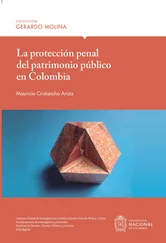He felt himself jostled from the side. He had to turn his whole body round to see. Ginger was sobbing and sniffling, unwilling or unable to open his respirator bag. Atkins hurriedly did it for him then thrust the gas hood over Ginger’s head. If the gas got to him while he was snivelling like that it would be the worse for him. Immediately Ginger started to panic and claw at the hood, trying to rip it from his head.
Atkins heard a muffled shout. Ketch, looking for trouble, had caught sight of the commotion and was coming towards him.
Atkins elbowed Porgy.
“Give us a hand with Ginger!”
Porgy stood one side of Ginger and grabbed his arm, Atkins stood the other side. They held him tight so he couldn’t struggle.
Atkins felt a tap on his shoulder; he swivelled round as much as he could.
“Whaff gun eer?”
“Sorry, Corporal. Can’t tell what you’re sayin’,” said Porgy.
He didn’t have to. Ketch poked him in the shoulder in a manner that said ‘I’m watching you.’ “Pick up your gun!” he enunciated carefully though the chemically-impregnated flannel, before returning to his position.
“Thirty seconds!” called Lieutenant Everson.
Atkins picked up his rifle and held it at the ready. Ginger had been a useful diversion. There was nothing worse than waiting for the whistle. He stared again at the scaling ladder before him, noting its shabby construction. There was not even a basic joint. The rungs had been hastily nailed to two longer pieces. Whoever expected them to climb it obviously didn’t expect them to have to climb it more than once. That about said it all.
“Ten seconds…”
EVERSON LIFTED HIS gas hood and blew his whistle before clumsily shoving the cloth back into his collar. Waving with his pistol, he watched his men scale the ladders. To his left, one fell back into the trench, immediately cut down. From beyond the parapet came cries and screams. He grabbed a rung and hauled himself up, cleared the sandbags, stepped out onto the mud and began to run, slogging through terrain the consistency of caramel, seeking to lead his men forward. He’d seen them all over the top with none left for the Battle Police to round up, which was no more than he’d expect of them. Another man fell in front of him. Everson stepped reluctantly over the body. It was not his job to stop and see if he were wounded or dead. The stretcher bearers would follow. Over to his left, he saw one of the tank machines as it nosed down into a shell hole and then reared up to clear it and rumble onwards along its terrible trajectory as spumes of earth exploded around it.
ATKINS HEARD THE whistle from far away, as if underwater, then another and another; some fainter, some louder. Up and down the line, dozens of subalterns blew their whistles or shouted their men forwards.
This was it. Under the tidal pull of fear he felt the swell of vomit and bile rise, and felt a growing urge to piss. He didn’t want to go over the top. You’d be mad to.
Someone hit him on the shoulder. Twice.
Shitohshitohshitohsh—
Atkins screamed in rage and terror, which wasn’t clever because it fogged up his eye pieces. He could barely see where he was going as it was. He scrambled up the ladder and over the parapet, and looked around. There to his left he saw sergeant’s stripes. Hobson was walking resolutely forward. Somewhere amid the explosions he caught the rolling tinny snap of the marching snares and the harmonious wail of the bagpipes playing as the Jocks advanced over on their left flank.
STANDING IN THE trench with his men was like standing by a pen of cattle waiting to be herded into the abattoir and meant just about as much to him. Jeffries felt no pity for them as he lifted his gas hood to blow his whistle. He caught sight of a man, his shoulders heaving as if with sobs, a dark wet patch spreading down his trouser legs. He wouldn’t move. Others clambered over the top to meet their fate. This one wouldn’t.
“I’m not going to have you ruin things, Bristow. Get over!” said Jeffries in cold measured tones. Bristow snivelled but didn’t stir. Jeffries sniffed derisively then shot him. “A death is a death Bristow, out there or down here, it’s all the same to me. You’ll have done your part either way.”
He climbed the ladder and stepped from the still security of the trenches into a maelstrom of noise and fury. Shots, cries, bullets and bombs raged about him but he felt no fear. Anticipation, excitement, even, but fear? No. What had he to fear, today of all days?
In front of him, Appleton fell. And Harlow. Burton just vanished in a plume of wet offal and dirt. Still Jeffries strode on, unencumbered by the pack, webbing and bandoliers that weighed down his men. Every step a step closer to his destiny. When the day’s bloodletting accrued to a critical mass, charging the landscape with a talisman of binding, he would speak the words he had long practised. The air screamed as shrapnel burst overhead, tearing down through flesh and mud alike. But none of it touched Jeffries.
Tendrils of chlorine lapped at his feet. Beneath his gas hood he wore a contented smile as he waded into the choking cloud with a surety that took the place of heroism. To be a hero you needed to feel fear. Jeffries didn’t feel fear. He didn’t need to. The sigil that he had drawn on his chest with Seeston’s blood, now beginning to crust and pull uncomfortably at the hairs there, saw to that.
AROUND ATKINS, MEN were marching forward into the clouds of gas; a rising tide of asphyxiating death. The ground was soft and treacherous underfoot. Muffled by his gas hood, the crump and boom of shells assumed a continuous roar that made his ear drums crackle. He glanced to his left. Pot Shot and Mercy were striding forward. He could make out the weak sunlight glinting off the tin triangles on their backpacks.
It was nearly a quarter of a mile to the forward German lines. Running with full pack through this mud would tire you out before you got there and you’d have no puff left for the fight. Already he could feel the muscles of his legs begin to ache from pulling against the mud. It was better, so they said, to walk and conserve your strength. Fair enough. But that bollocks about carrying on and not seeking cover? Stuff that.
Following the tape he reached the British wire. He could hear the insistent stuttering of the British machine guns, while above them shells burst, leaving lazy black woolly clouds hanging in the air as shards of hot metal ripped down through bodies below. Ahead of him now, men began to drop, some hanging on the wire as if they were puppets whose strings had been cut. He walked on past the fallen, some dead, some wounded, crying and begging for help. Most still wore their gas hoods and Atkins was grateful that he could not see their faces. You weren’t supposed to stop for them. You weren’t allowed to. Carry on. Forward. Always forward. He walked on aware that every step could be his last. Was it this one? This one? This?
The great bank of greenish grey fog, a mixture of chlorine, cordite and smoke rolled over them, enveloping the soldiers like a shroud. Atkins lost sight of his Section. He stepped aside to avoid a shell hole that loomed up out of the ground before him and found his leg caught. He looked down; a hand had grabbed his mud-encrusted puttee. A man, maskless, green froth oozing slowly from his mouth, gagged and struggled, tearing at his own throat with a bloodied hand, drowning on dry land as the chlorine reacted in his lungs. Atkins tugged his ankle free and marched on. Shell holes were death traps now. The gas was sinking to the lowest point it could find, settling in pockets like ghostly green rock pools, where the weary and wounded had sought shelter.
As he walked on, he began to experience a light-headed feeling. Around him the gas cloud seemed to glow with a diffuse phosphorescence. The noise of battle, the rattle of machine guns and the constant crumpcrumpcrump of artillery, the zing of bullets seemed somehow muffled and distant. He stumbled as he missed his footing. He looked down. His body seemed to be longer than it should have been, stretching and undulating until a wave of vertigo overwhelmed him. Letting go of his rifle, he dropped to his hands and knees. The small area of ground before him seemed to swim and ripple gently and, no matter how hard he tried, he couldn’t bring it into focus. Sweat began to prickle his face, he felt a pressure in his head, something trickled from his ear and he could taste the iron tang of blood running from his nose. The whole world seemed to tilt and from the periphery of his vision an oozing darkness spilled inwards until he could see no more than a few square inches of the Somme mud before his face. What remained of his vision filled with bursting spots of light as the world began to slip away…
Читать дальше
